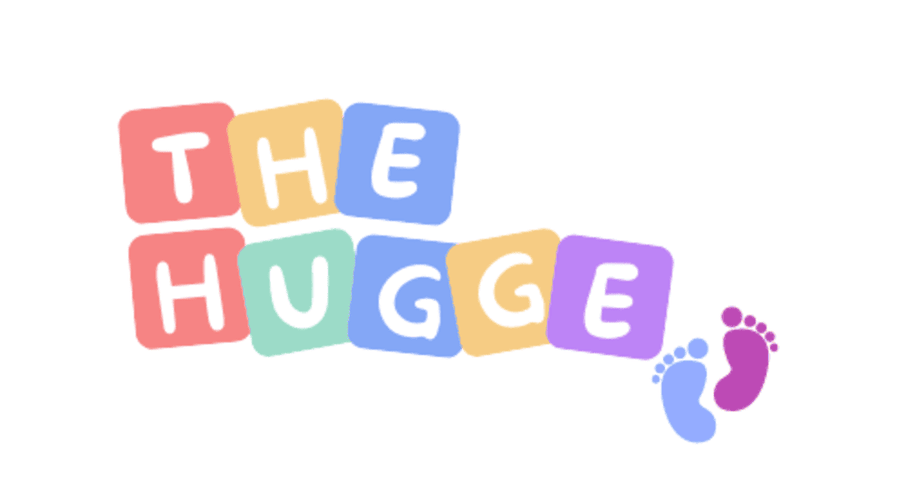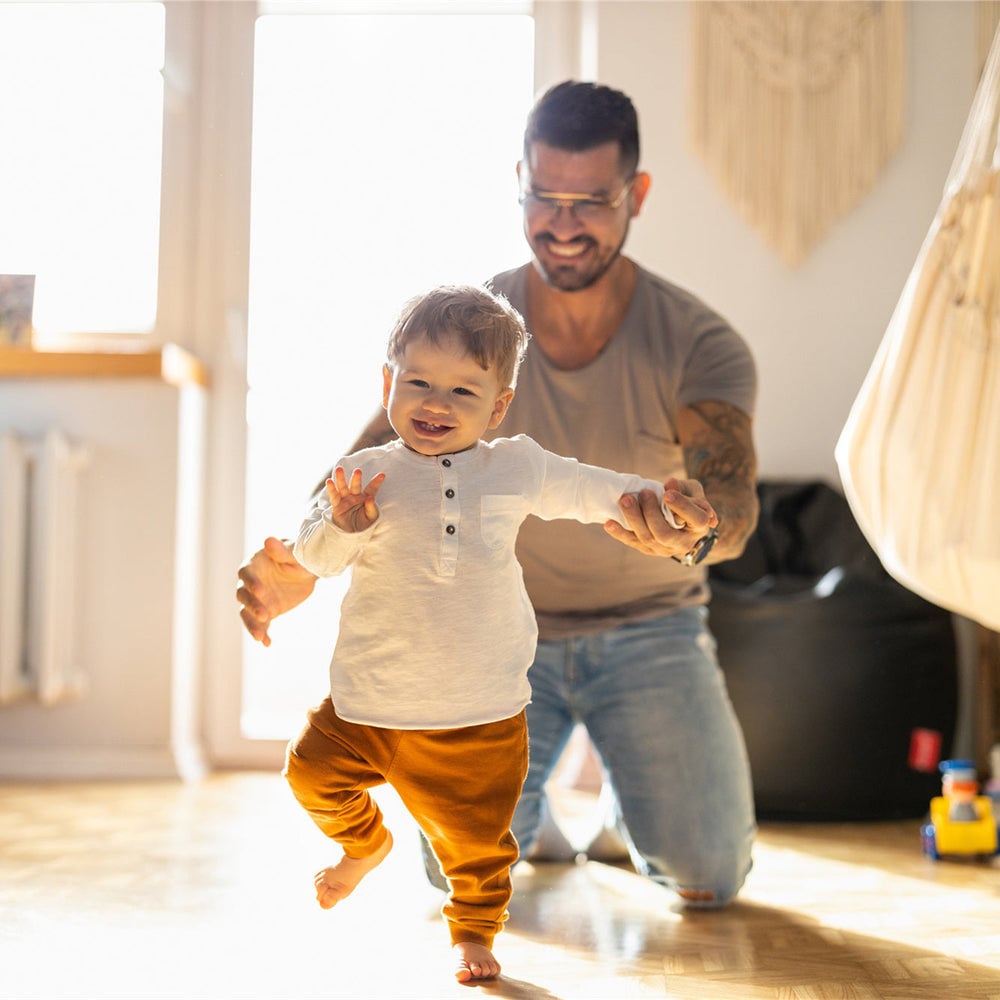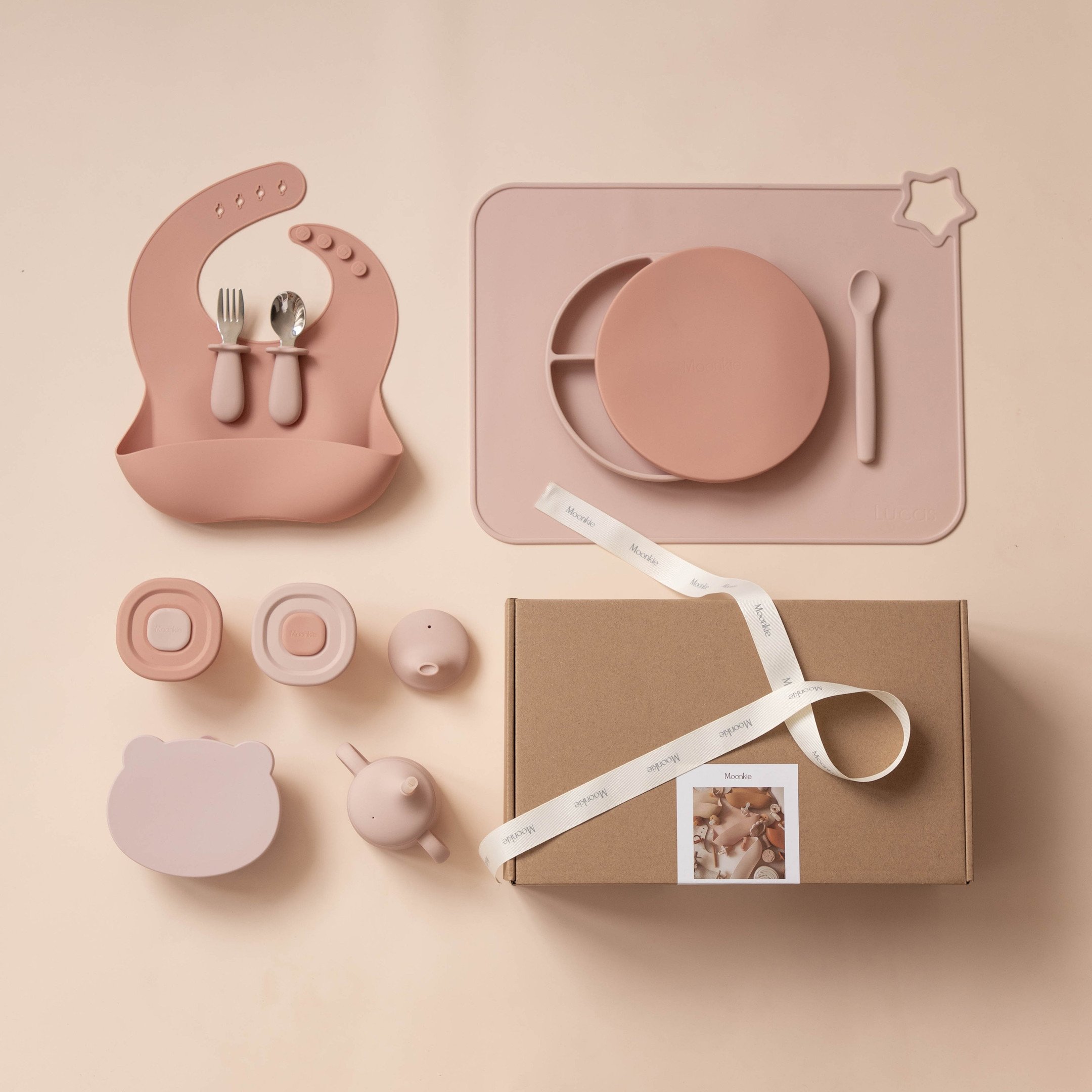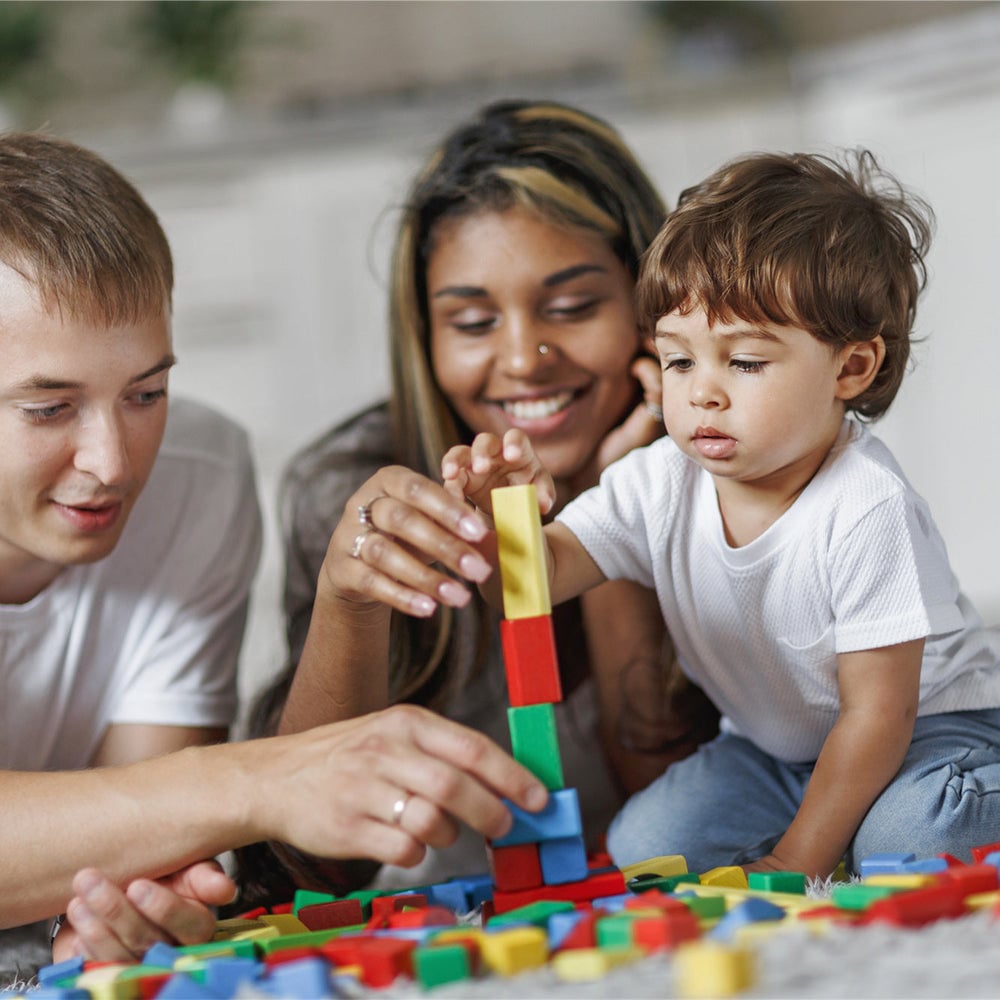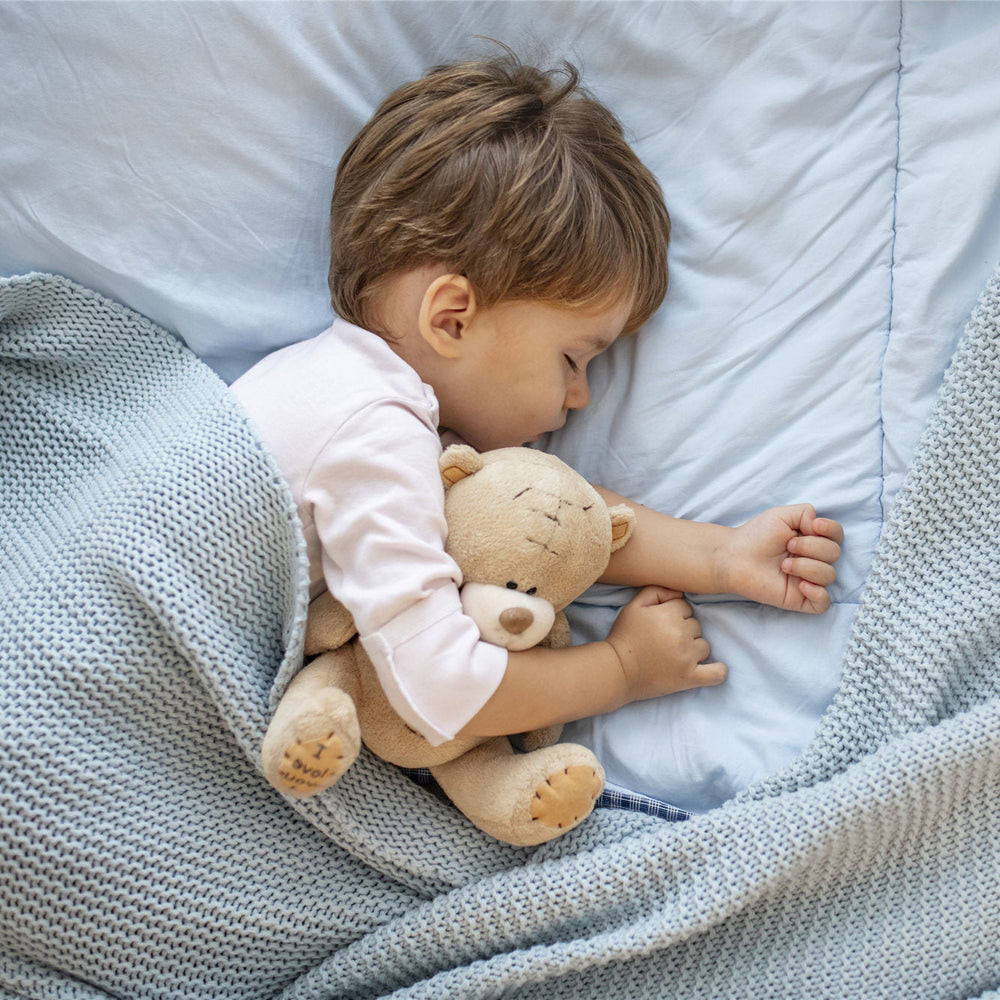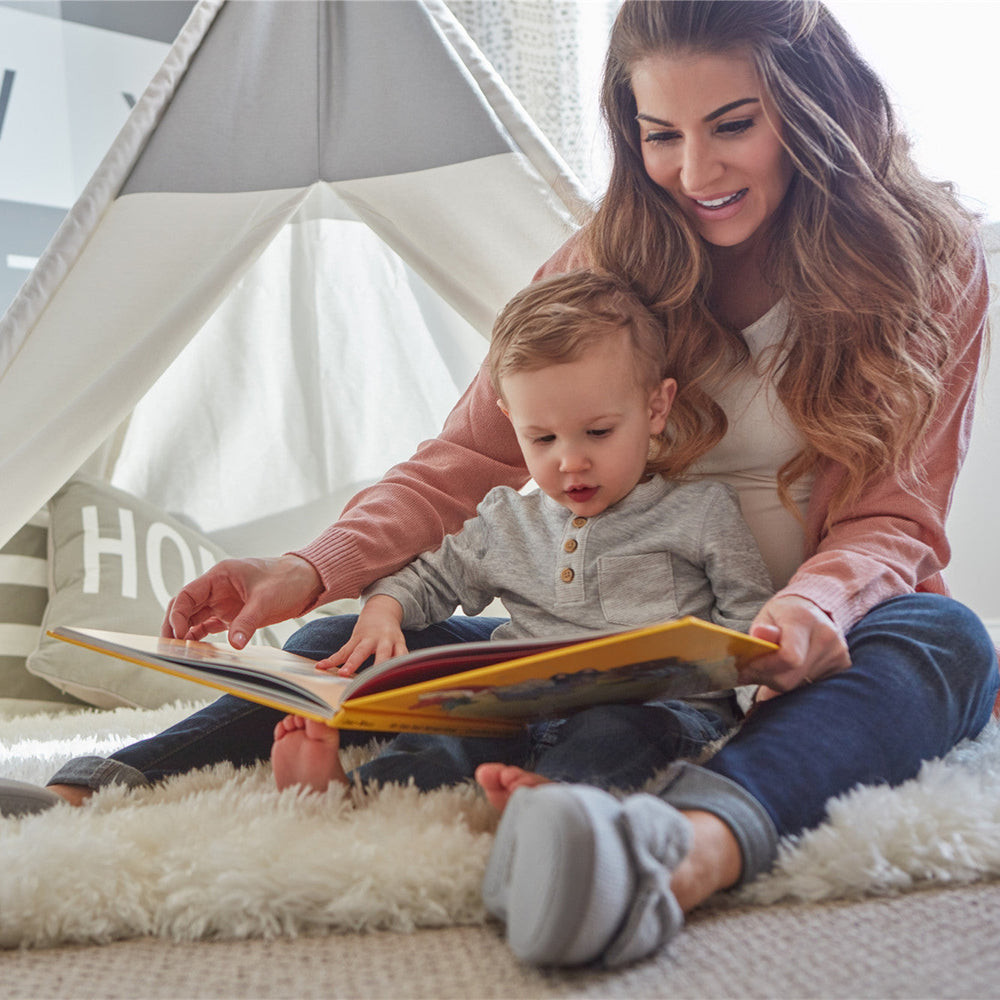🎁 FREE SHIPPING FOR ALL ORDER NOW 🎁
Bonding with Your Baby: Why Dads are Just as Important as Moms
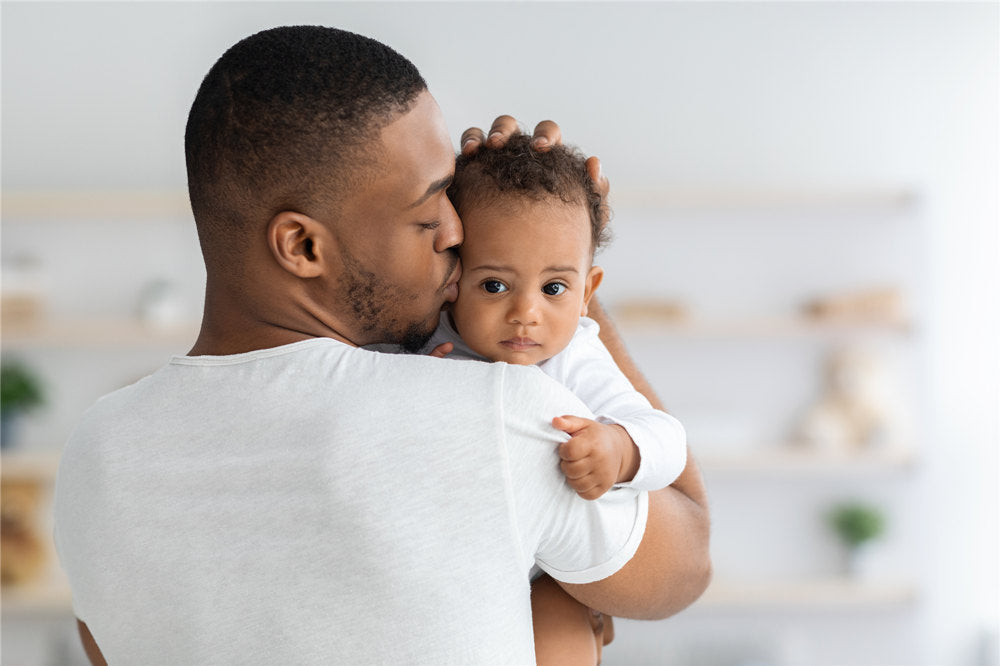
New dad? Feeling like you're not as important to your new baby as the mother is? After all, she's the one who carried your baby for nine months, gave birth, and is likely breastfeeding. But the truth is, bonding with your baby is just as essential for dads as it is for moms.
Research has shown that babies with strong bonds to their fathers are more likely to be emotionally secure, have better social connections, and perform better academically later in life (source). Babies can bond with their fathers, but fathers need to take the initiative.
This article will explore father-child bonding and share some research-supported tips for dads wanting to connect with their babies.
What Is Paternal Bonding?
Surprisingly, paternal bonding is not well defined in research (source). Is it more emotional or physical? Does bonding start with the father before birth, or does it require the baby's response? Is it similar or different to maternal bonding?
Older kids, teenagers, and adults can define "bonding" as nurturing a relationship with someone based on shared experiences, interests, or feelings. But how do you do that with a baby?
Fathers can bond with their baby by consistently being there for them in caring for their little one, showing him how the world works, and cheering him on as he progresses through various milestones.
What Are the Differences Between Paternal and Maternal Bonding?
Mothers get a physiological headstart on bonding with their baby through pregnancy, birth, and nursing, but what are fathers good for to a baby (source)? One study found that many dads feel jealous of the mother-baby relationship because they don't feel like their relationship is as "natural" or "instinctive" (source).
Some research out there shows that dads who are more involved in early infant care by holding their little one skin-to-skin soon after birth, bottle feeding, and spending lots of time playing and napping with their newborn have a much more confident and sure bond with their little one than dads who don't (source, source).
But it is clear that many fathers choose to remain somewhat distant for fear of hurting their baby or messing things up somehow. Choosing to distance oneself from one's own child will likely do more harm than good, and honestly, parenting doesn't exactly come "instinctively" to mothers anyway.
Though a dad is not the one who carried and delivered his baby, he can still be there every step of the way:
-
His voice can be heard from the womb.
-
He can be there to hold the baby at birth.
-
He can help change the baby.
-
He can help feed the baby with a bottle.
-
He can help calm fussiness.
-
He can wear his baby in a carrier and talk about what he sees.
-
He can play with his baby.
-
He can speak to his baby.
-
He can help introduce solids to his baby.
-
He can read to his baby.
You get the point. There are so many opportunities for dads and babies to bond, and many of them can be just as natural as pregnancy, birth, or breastfeeding. Babies don't isolate themselves from all people, and moms are usually thankful for the break!
Can Dads Get Postpartum Depression?
Admittedly, fathers have it rough during pregnancy and after birth. Health professionals focus on the mother and baby throughout, taking no notes on how the father is feeling, coping, or keeping up.
Research and postpartum care exist for mothers struggling with postpartum depression, but it turns out that dads can have the baby blues, too.
The risk is that 7-9% of males may become depressed the first year after a new baby arrives, but if his partner has postpartum depression, that percentage shoots up to 50% (source).
So, what can dads do to beat the baby blues? Making time to bond with their baby, taking care of oneself, and seeking support from other dads and professionals are all steps for managing paternal depression.
Why Father-Child Bonding Is Important
Fathers play a crucial part in their baby's upbringing if they are willing to be involved. Moreover, they are just as incremental to a baby's exploration and discovery as a mom is, and there's very little that a dad cannot do outside of the mom's ability to carry, birth, and breastfeed the baby.
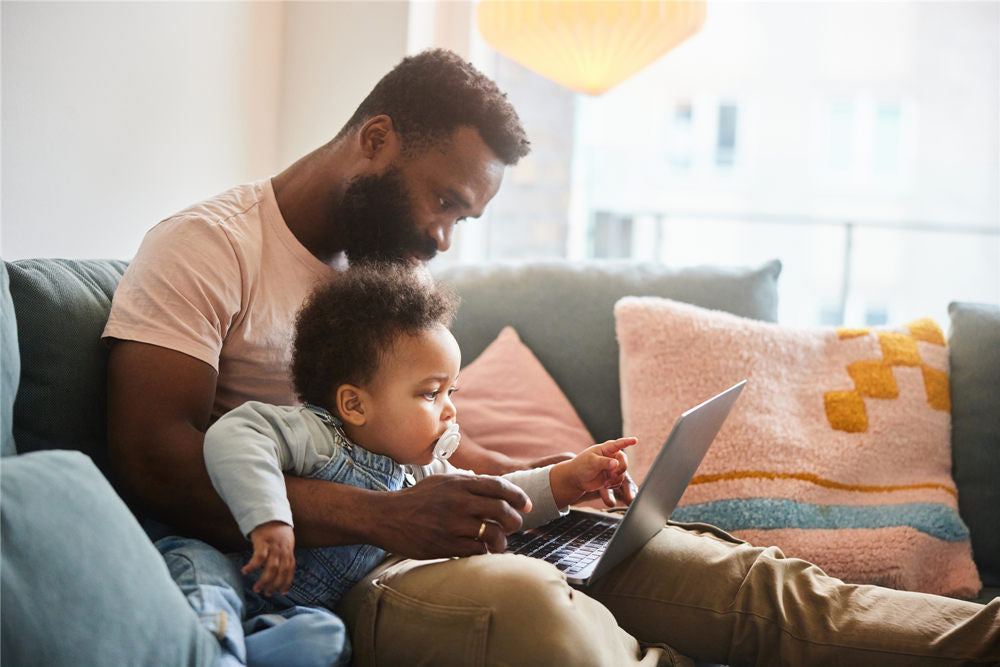
Having two parents pouring into the growth and wellbeing of a baby, toddler, or child makes a lot of sense from a benefit standpoint. Babies and young children require a substantial amount of time, energy, and resources to raise well, so having an invested partner in this parenting craziness is super helpful!
Here are a few specific reasons why father-child bonding is essential:
Social and Emotional Security
If you are already a parent, you already know that something as "insignificant" as a stubbed toe or a toy being snatched out of hand can become a huge blowup. Little ones have a small world, so the things that seem small to us are colossal to them, and those big feelings take time.
Babies and toddlers who know they can go to either mommy or daddy for emotional support end up a lot more sure of themselves later in life, especially if their struggles, failures, and mistakes are met with grace and patience rather than frustration.
Research has also found that a father's absence or distance negatively impacts their children's social and emotional development (source).
Even more specifically, kids who grow up in a household with their own married parents tend to make better lifestyle choices, have better relationships, and have successful marriages as adults (source).
Family Stability
Fathers who are intentional about investing time into their relationship with their children and seek to bond with each one typically see the fruit of their investment in family stability. Even dads who work away from home yet spend quality time with each child during their time off benefit their overall family stability (source).
The stability that comes to children who grow up knowing their mom and dad love them deeply and willingly invest quality time and effort into connecting with them generally results in kids who:
-
live healthier lives physically and psychologically
-
do better in school
-
tend to graduate high school and attend college
-
avoid becoming entangled by drugs or alcohol
-
avoid abusing others or becoming sexually abused (source)
In other words, babies, toddlers, children, and teenagers who know and trust their dads are more likely to grow because they see a solid example of a father in front of them. The boys grow up and learn how to be solid husbands and fathers, while the girls grow up knowing how a man should treat her.
Future Wisdom
Having a bond with your father is wonderfully helpful for rounding out wisdom later in life. Teenagers, young adults, and adults who know they can go to their dad for wisdom or practical knowledge have a resource that cannot be replicated online.
Sure, you can go online to learn about anything these days, but that information is quickly becoming watered down with AI-generated noise. Some businesses and content creators invest time and money into fact-checking the AI's content before publishing, but many don't.
How do we discern sound advice from authoritatively stated lies? People we trust. Generally speaking, hard-earned wisdom handed down from someone who has known you since birth is a gem that we don't value enough these days.
Does Bonding With Your Baby Always Lead to Rearing Successful Children?
Does being a present and intentional father consistently seeking opportunities to bond with his kids always result in well-rounded individuals? No, it doesn't. Other factors, voices, and temptations can lead a person astray.
But, research shows that present fathers generally rear more stable children.
Tips for Dads to Bond with Their Babies
So, where does bonding with your child start? As soon as you have a baby! Your baby can hear your voice around 27 to 29 weeks in the womb. Speak often, make funny sounds, and try moving a light around Mommy's belly for your baby to push at. It's fun!
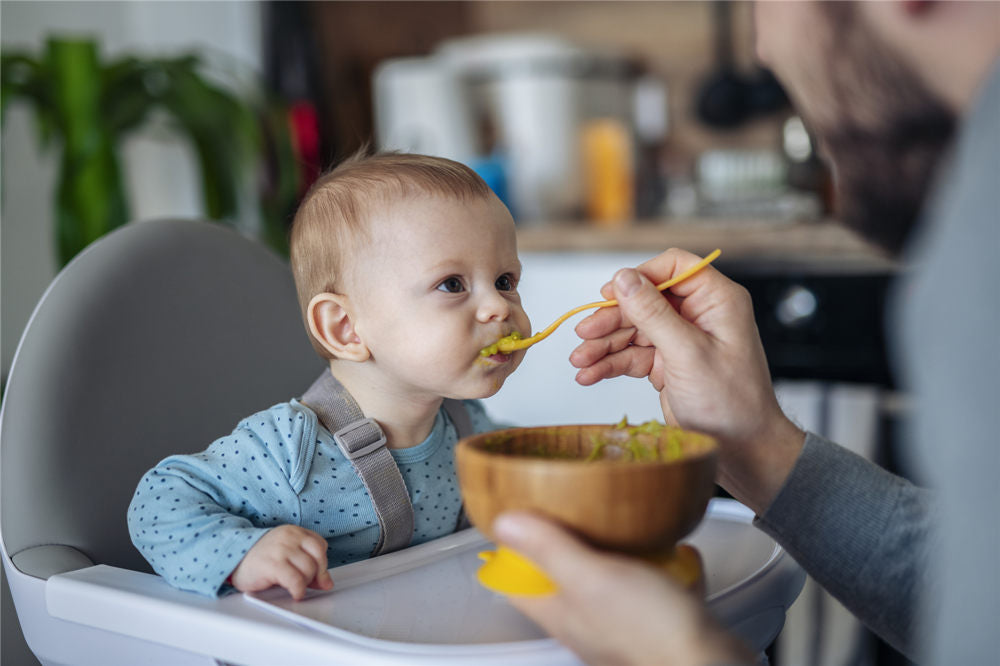
Once your baby is born, don't be discouraged by all that you can't do. Take the initiative to be there, helping with changing, soothing fussiness, and burping your little one. You can't do everything, but you can get involved in your baby's needs. Mommy will appreciate the help, too!
Here are a few other ways dads can bond with their babies:
Skin-to-skin Contact
Babies need to feel safe, secure, warm, and cozy. After all, it was super toasty and comfy in Mommy's belly. When Mommy is ready for a break, take your little one and place him on your bare chest.
Holding your baby skin-to-skin can help promote bonding and safe feelings and may even regulate your baby's body temperature and breathing.
Spend Time Together
Spending time with your baby is the most significant thing you can do to bond with her, and that doesn't change as the years go on. Even if you can only spare a few minutes each day, make the most of that time.
Some may think, "Why does it matter? My baby won't miss me at all for the first few months," but those who start with that attitude find it hard to shake off as time moves on. Your baby will bond with you sooner if you are consistently spending time with her from the get-go.
Playtime
Playtime is a fantastic way to bond with your baby. Try playing peek-a-boo, singing songs, or reading stories to your little one. Watch him explore as he grows, and help him get the most out of that exploration by cheering him on, talking him through what he's seeing, and giving him things to play with.
Babywearing
As odd as it seems, wearing your baby in a carrier or sling can help promote bonding and give you and your baby a chance to be close to each other. Your little one wants to be with you and participate, but she can't do that much early on. Babywearing fixes that!
Getting to go with you and see what you see is fascinating to your little one, especially if you let her touch some of what she sees. My babies loved going on walks outside in the carrier because I let them touch lots of different textures and talked about everything we could see.
Take Care of Yourself
Look, taking care of a baby is exceptionally exhausting, even for dads. Doing what you can to take care of mom and baby can cause you to burn out quickly or lead to paternal depression.
Taking care of your own physical and emotional needs is crucial for your wellbeing and can help you be a better dad. If that means doing workouts with your baby, then do that. If it means fishing for a few hours once a week, make it happen. You've got to take care of yourself to sustainably be there for your family.
Seek Support
Don't be afraid to seek support from other dads or a professional if you are struggling to bond with your baby. It is a thing, and it can be dealt with. In 2021, 1 in 5 stay-at-home parents were dads, which is significantly higher than anytime before in American history (source).
As such, new resources and dad support groups are popping up all over the place. Get connected to stay sane! Mothers know the struggle, but they don't fully grasp it from a man's perspective. Finding a solid group of guys who know exactly what you're going through is a resource worth having.
SHARE:
Leave a comment
Inspirational Corner for Parents
CONTACT INFO
Phone: (+84) 943334326
Email: contact@thehugge.com
Support Hours: 9 A.M - 6 P.M Mon - Fri (GMT-5)
SHOP
SUPPORT PAGES
POLICIES
© 2023 The Hugge. All rights reserved.

